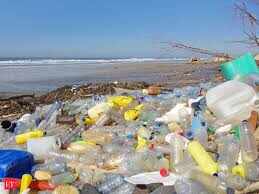 Tirupur: The Tirupur apparel cluster has failed to streamline the disposal of plastic wastes despite the state government giving its exemption a year ago to the export units to utilize banned single-use plastics.
Tirupur: The Tirupur apparel cluster has failed to streamline the disposal of plastic wastes despite the state government giving its exemption a year ago to the export units to utilize banned single-use plastics.
The apparel units use single-use plastics with thickness of 20-60 micron to pack finished goods and wrap fabrics and other materials. In a month, 500 metres of plastic wastes are generated in the cluster.
“The corporation receives only around 6mt plastic and other non-biodegradable wastes daily. Going by the number of industrial units from all sectors, the number is very less. We handle more than 460mt wastes, including 207mt wet wastes and 253mt dry wastes daily,” corporation city health officer C Boopathi said.
An official of the Tamil Nadu Pollution Control Board said, “Many industrial units dump plastic wastes and other non-biodegradable wastes in open or sometimes in waterbodies.”
The corporation has signed a memorandum of understanding with Nothing Is Waste, a non-governmental organisation, for collecting and disposing industrial wastes. The organisation operates two segregation-cum-baling units at Thennampalayam.
“We mainly receive plastic wastes, carton box wastes, clothes and other office-use wastes. Though many plastic or other wastes can be recycled, it could not be done because the industrial units fail to segregate them properly. We could see that dumping of foams utilized in embroidery units were major wastes that hurt environment,” Mohammed Rizaz of Nothing Is Waste said.
Owner of a computer embroidery unit said, “More than 250mt foam wastes would be generated in Tirupur cluster in a month. Since there were no takers, most of the units would be sending those wastes to other processing units to utilize them as fuel in boilers, which is also harmful to the environment. Some of the embroidery units were dumping them in open and waterbodies. A private firm offered services of disposing the foam wastes, but it demanded Rs10 per kg. We would be ready to engage such firms only if they demand Rs2-3 per kg for the disposal.”
Tirupur Exporters’ Association president Raja M Shanmugham said, “We expect the corporation to come up with a plan for disposal.”
